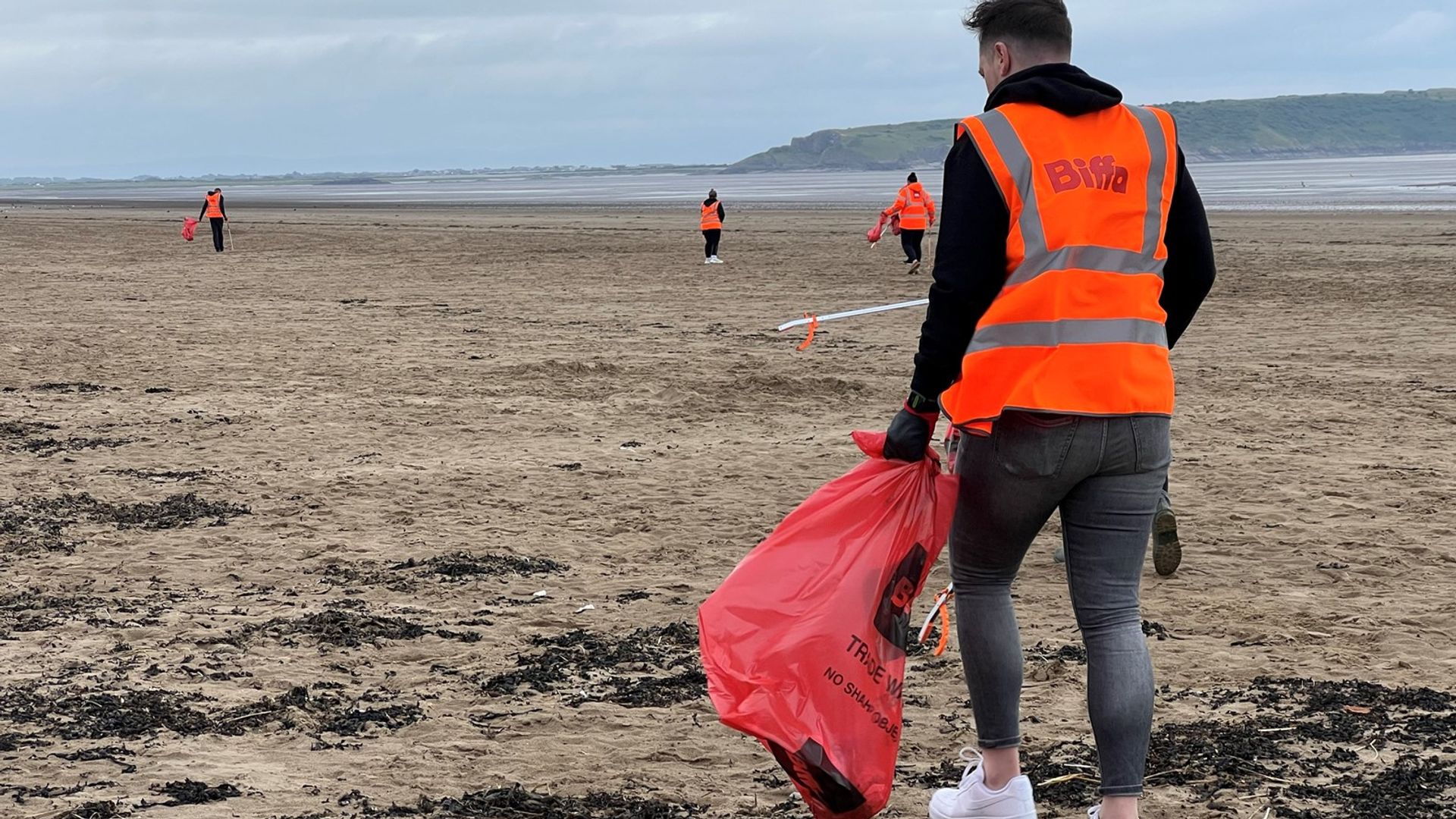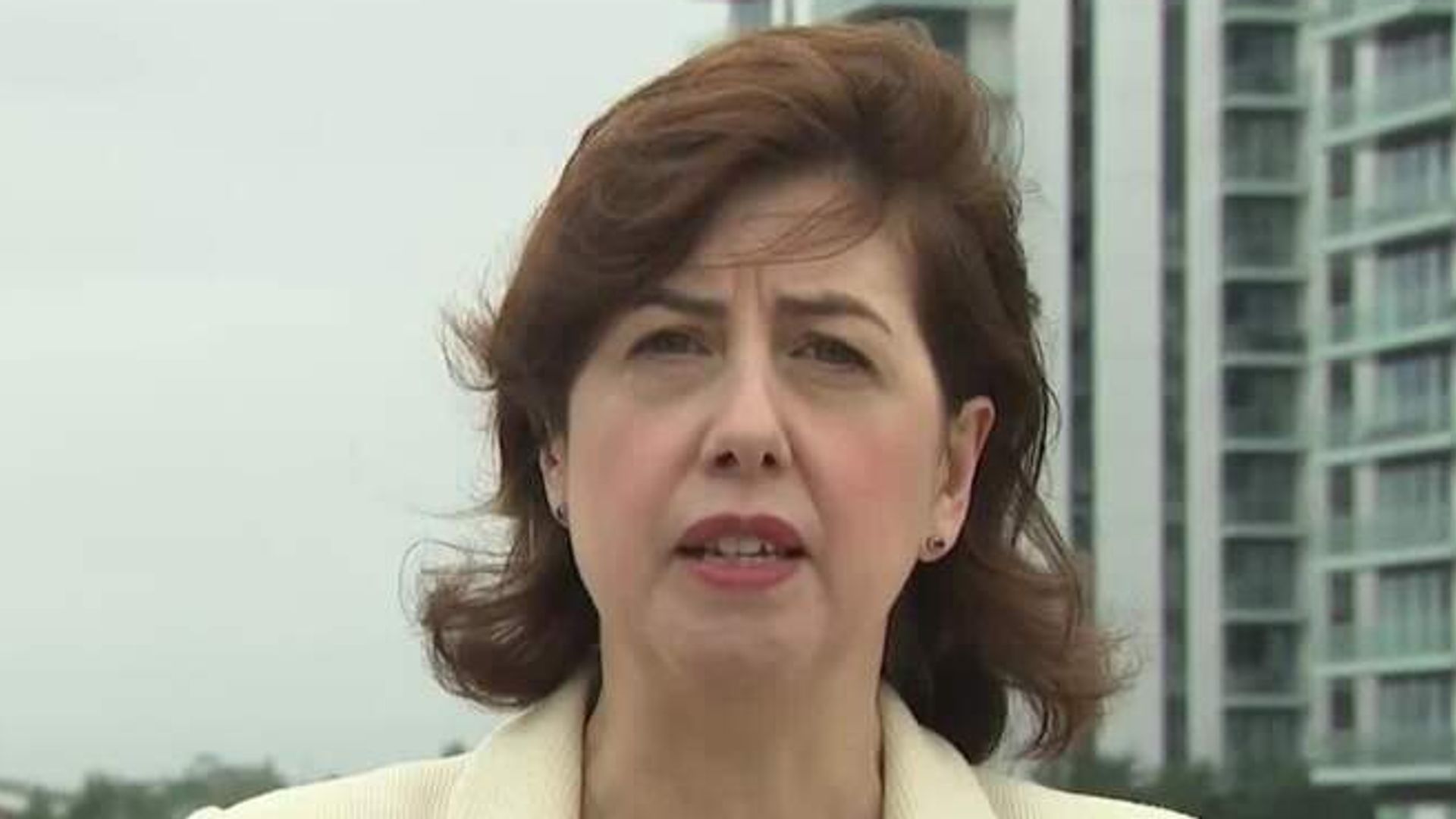Volunteers have picked up more than 60kg of waste from one English beach.
Clothes, flip-flops, socks, fishing wire and plenty of bottles and cans were among the items salvaged from the sand on Southbourne Beach, Bournemouth.
Local workers from recycling firm Biffa and staff from hospitality company Mitchells & Butlers set out to clean up the Dorset beach on 17 July.
It then took a few weeks to take it back to the Poole depot, where it was weighed and sorted.
Half of the 60kg (9.6 stone) haul was made up of glass bottles, while almost a third of the weight came from plastic bottles, both of which are relatively easy to recycle.
Anything eligible, like plastics and glass bottles, was sent for recycling.
Non-recyclable general waste was sent to an energy-from-waste facility to be burned to generate electricity.
Three water companies facing £168m combined fine over sewage failings
Could a tax on plastic bottles solve the pollution problem on UK shores?
Edinburgh Council issues more than 6,000 LEZ fines in a month
Mark Chapman, Biffa’s head of corporate accounts, said: “We take great pride in supporting local sustainability projects and were thrilled to work alongside our customer Mitchells & Butlers for the litter pick at Southbourne Beach, helping to ensure our beautiful coastline is protected for everyone’s enjoyment.”
The two companies have partnered on a food waste project to use it to generate energy rather than going to landfill.
Please use Chrome browser for a more accessible video player
Be the first to get Breaking News
Install the Sky News app for free
The new Labour government last week committed to bringing forward a deposit return scheme to tackle litter and boost recycling.
Successful in Norway and Germany, such systems see consumers pay a small deposit for drinks containers, which is refunded upon return.
Read more from Sky News:
Three water companies facing £168m combined sewage fine
‘A dark day for UK human rights’ as climate activists jailed
Wildfire risk in southern Europe holiday destinations
The UK government committed to one in 2018, but plans have been beset by technical difficulties and delays, and in April was again pushed back from 2025 to 2027.
Last week the environment department said it was aiming to bring in the scheme before October 2027.






